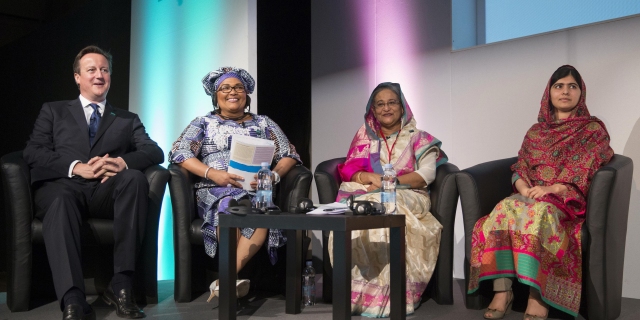February 6th was the International Day of Zero Tolerance for Female Genital Mutilation, an opportunity for the world to stand together against the practice.
Whilst there is evidence to suggest that male circumcision has some medical benefits, there are none demonstrated of female circumcision; rather, the complete opposite is true: FGM often leads to urinary tract infections, cysts, chronic pain, complications during child birth and fatal bleeding.
Because of this the international community wonders why it still exists today. Entrenched in ritualistic beliefs, women who are cut are considered more hygienic and clean. Those who refuse FGM in any form often face punishment and are ostracised, leaving them with little to no livelihood.
The reasons for this practice are deeper than those which are promulgated in societies that openly practice FGM. Instead, FGM is used to maintain gender inequality, to control a woman’s sexuality and their right of autonomy. UNICEF has described FGM as a ‘self-enforcing social convention’.
Many countries over the years have implemented legislation prohibiting FGM, however, its effect has been small.
In 2012 Resolution A/RES/67/146 was adopted, a means to intensify ‘global efforts for the elimination of female genital mutilations’. It recommended that member states acknowledge the 6th of February as International Day of Zero Tolerance for Female Genital Mutilation, to raise awareness of campaigns to support victims of FGM, and to help prevent FGM occurring. The Resolution was followed by another in 2014, adopted without a vote, which urged member states to ‘develop, support and implement comprehensive and integrated strategies for the prevention of female genital mutilation’.
FGM is also being tackled in other ways by individual country’s legal systems. In 2006, the case of Fornah (FC) v SSHD, was brought to the House of Lords, where it was determined that FGM is to be considered contrary to Article 3 of the ECHR that states ‘No one shall be subjected to torture or to inhuman or degrading treatment or punishment’.
In Egypt, on the 26th January 2015, Raslan Fadl, an Egyptian doctor, was convicted for the manslaughter of a 13 year old girl, Suhair al-Bataa, and for committing FGM. After Suhair al-Bataa’s death both the father and Fadl were acquitted but, after an appeal, were convicted of a three-month suspended sentence with two years and three months respectively. This was considered a ‘monumental victory’, but is this punishment enough to deter further instances of FGM?
Whilst Britain has employed strong laws to combat FGM, in the past thirty years, since the first Act was enforced, there have been no convictions. France by comparison has convicted over one hundred people. The questions which remain are why are we failing? and can we do more to ensure these children and young women remain safe?
Further reading:
http://www.un.org/en/events/femalegenitalmutilationday/
http://www.bbc.co.uk/news/uk-23933437
http://www.bbc.co.uk/news/world-middle-east-30983027
http://www.theguardian.com/society/2014/dec/13/fgm-my-daughter-will-never-be-cut-it-stops-with-me
http://www.dofeve.org/about-fgm.html
http://www.theguardian.com/society/2014/oct/20/uk-introduce-measures-stop-girls-taken-abroad-fgm
Article written by Emily Bedson

